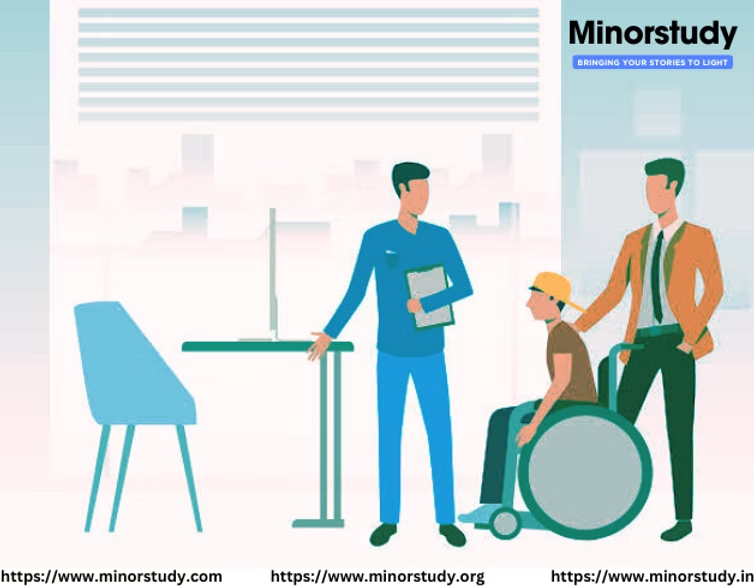Bachelor of Occupational Therapy (BOT)
The Bachelor of Occupational Therapy (BOT) is an undergraduate program that prepares students to work as occupational therapists (OTs). Occupational therapy is a healthcare profession that focuses on helping individuals achieve independence in their daily activities or “occupations.” These may include personal care tasks, work, leisure activities, and social participation. The aim of the program is to train students in techniques and approaches that enable them to assist individuals with physical, mental, or emotional challenges.
Overview of Bachelor of Occupational Therapy (BOT):
Degree Level: Undergraduate
Duration: Typically 3-4 years (depending on the country or university)
Mode of Study: Full-time (with clinical placements)
Degree Awarded: Bachelor of Occupational Therapy
Focus Areas: Health sciences, human anatomy, psychology, rehabilitation, and community health
Key Subjects in the Bachelor of Occupational Therapy Program:
Year | Subject | Description |
Year 1 | Foundations of Occupational Therapy | Introduction to the principles, history, and scope of occupational therapy. |
Human Anatomy and Physiology | Study of human body systems, structures, and functions. | |
Psychology | Basics of human behavior, cognition, emotions, and mental health. | |
Health & Wellness | Focus on promoting overall health, nutrition, and lifestyle for optimal well-being. | |
Year 2 | Occupational Therapy Practice & Skills | Learning core skills and interventions used in OT practice such as assessment, treatment planning, and intervention techniques. |
Neuroanatomy and Neurological Disorders | Study of the nervous system, brain functions, and common neurological conditions such as stroke, brain injury, and cerebral palsy. | |
Paediatrics and Occupational Therapy | Specialized OT interventions for children with developmental or physical disabilities. | |
Ergonomics | Study of workplace design and adaptation to prevent injuries and promote efficiency. | |
Year 3 | Adult Physical Rehabilitation | Intervention strategies for adults with injuries or disabilities affecting mobility and daily activities. |
Mental Health and OT | Exploring the role of occupational therapy in treating mental health conditions such as depression, anxiety, and PTSD. | |
Community-Based Practice | Focus on OT interventions in community settings, home care, and public health promotion. | |
Research Methodology in OT | Introduction to research methods, data collection, and evidence-based practices in occupational therapy. | |
Year 4 | Clinical Practice/Internship | Hands-on experience in hospitals, rehabilitation centers, schools, or community clinics, under the supervision of licensed professionals. |
Advanced Occupational Therapy Skills | Development of specialized OT skills in areas such as pediatrics, geriatrics, or work rehabilitation. | |
Ethics and Professionalism in OT | Examination of ethical principles, professional conduct, and legal aspects of working as an occupational therapist. | |
Capstone Project or Thesis | A final project or research thesis to demonstrate knowledge and skills acquired during the program. |
Key Skills Developed:
Assessment Skills: Evaluating patients’ physical, emotional, and social needs.
Therapeutic Techniques: Using interventions to improve motor skills, cognitive abilities, and emotional well-being.
Patient-Centered Care: Tailoring interventions to the needs and preferences of each individual.
Communication Skills: Working closely with patients, families, and interdisciplinary teams.
Problem-Solving: Developing creative strategies to overcome barriers in patients’ daily lives.
Career Opportunities:
Graduates of the BOT program can work in various settings, including:
Hospitals and Rehabilitation Centers
Schools (special education and developmental therapy)
Community Health Centers
Private Practice (as independent practitioners)
Workplace Rehabilitation (helping employees return to work post-injury)
Nursing Homes and Geriatric Care
Pediatric Clinics
Mental Health Institutions
Role of an Occupational Therapist:
Occupational therapists work with patients of all ages to help them perform activities of daily living (ADLs) such as dressing, eating, bathing, and working. They also work with patients to adapt their environment to fit their needs, modify tasks, and suggest assistive devices to increase functionality and independence. OT interventions can improve quality of life by addressing physical, mental, and cognitive barriers to engaging in routine activities.
Significance of Occupational Therapy:
Inclusion and Independence: Helps individuals with physical disabilities or mental health challenges gain independence.
Recovery Support: Assists patients recovering from surgeries, accidents, or strokes by promoting mobility and functionality.
Mental Health: Provides therapeutic interventions for people with anxiety, depression, PTSD, and other mental health disorders.
Preventive Care: Focuses on prevention of injuries in work and home environments through ergonomic practices.
Conclusion:
The Bachelor of Occupational Therapy (BOT) equips students with the knowledge, skills, and clinical experience needed to become professionals who significantly impact individuals’ quality of life. By promoting independence and improving functionality, occupational therapists help people lead fuller, more meaningful lives. The program is ideal for those passionate about healthcare, rehabilitation, and working closely with diverse populations.








